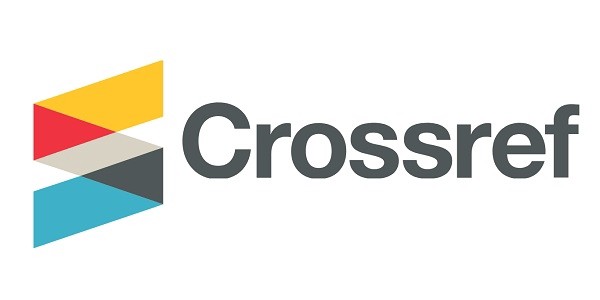FAMILY BEEKEEPING
its importance in the economic, social and ecological scenario
DOI:
https://doi.org/10.31510/infa.v18i1.1124Keywords:
Family Beekeeping, Economy, Ecology, Social, BrazilAbstract
Changing the forms of productivity, as a strategy for increasing income, ecological balance and meeting social needs, specifically the food process, has been the reality of many families living on family farming, which has shown great and important growth in the Brazil. Beekeeping is an activity that has been growing and showing great efficiency both for the production of honey for food consumption, as for the cultivation and reproduction of bees, so that the ecological balance is maintained. The objective of this study is to show the importance of family beekeeping for the Brazilian economic, social and ecological scenario. The methodology used for this study was a literature review, with consultation in books, articles and websites that focus on the theme of this study. For the reading of the articles, the date of publication (in the last ten years) and language (Portuguese) were used as inclusion criteria. As an exclusion criterion, publication dates were used more than ten years ago and being in another language. The results obtained point to the importance of encouraging family beekeeping to be increasingly intensified, becoming a frequent activity within agriculture, specifically family farming.
Downloads
Metrics
References
AGROLINK. Mel Brasileiro no Topo. 2019. Disponível em: https://rastrorural.com.br/index.
php/agronegocios/item/1177-mel-brasileiro-no-topo. Acesso em: 10 fev. 2021.
ALCOFORADO-FILHO, F.G. Sustentabilidade do Semiárido através da apicultura. In: Congresso Brasileiro de Apicultura, 12., Salvador, 1998. Anais... Salvador: Confederação Brasileira de Apicultura, 1998. p. 61.
BACAXIXI, P.; et al. A importância da Apicultura no Brasil. 2011. Rev. Eletrônica de Agronomia. Disponível em: http://faef.revista.inf.br/imagens_arquivos/arquivos_desta
que/4obaFHM5hPoTX99_2013-5-17-17-41-22.pdf. Acesso em: 2 fev. 2021.
BATISTA JÚNIOR, J. L. Impacto econômico e social da apicultura na agricultura familiar do território do sisal, semiárido da Bahia. 2013. Disponível em: https://repositorio.ufba.br/ri/bitstream/ri/14419/1/TCC%2020-08-2013%20pronto.%20%283
%29.pdf. Acesso em: 12 jan. 2021.
BEZERRA, G. J.; SCHLINDWEINAG, M. M. Agricultura familiar como geração de renda e desenvolvimento local: uma análise para Dourados, MS, Brasil. INTERAÇÕES, Campo Grande, MS, v. 18, n. 1, p. 3-15, 2017. Disponível em: https://www.scielo.br/pdf/inter/v18n1/1518-7012-inter-18-01-0003.pdf. Acesso em: 10 fev. 2021.
BITTENCOURT, D. Agricultura familiar, desafios e oportunidades rumo à inovação. 2018. Disponível em: https://www.embrapa.br/busca-de-noticias/-/noticia/31505030/artigo---agricultura-familiar-desafios-e-oportunidades-rumo-a-inovacao. Acesso em: 10 jan. 2021.
CAMARGO, J. M. F. Manual de apicultura. São Paulo: Agronômica Ceres, 1972.
COUTO, R. H. N.; COUTO, L. A. Apicultura: manejo e produtos. 2 ed. Jaboticabal: FUNEP, 2002. 191 p.
EMBRAPA MEIO NORTE (Terezina-PI) Apicultura: Sistema de Produção, 3. ISSN 1678-8818. Versão Eletrônica, Jun 2003.
EPAGRI. Jornada virtual da apicultura e meliponicultura alcançou mais de 17 mil pessoas. 2020. Disponível em: https://www.epagri.sc.gov.br/index.php/2020/12/01/jornada-da-apicultura-e-meliponicultura-alcancou-mais-de-17-mil-pessoas/. Acesso em: 2 mar. 2021.
FAO. Key Statistics of food and agriculture external trade.2004. Disponível em: http://www.fao.org/faostat/en/. Acesso em: 10 jan. 2021.
FERNANDES, T. A importância das abelhas na vida do planeta. Disponível em: http://www.rondoniagora.com/noticias/aimportancia-das-abelhas-na-vida-do-planeta-%E2%80%93-por-tadeu-fernandes.htm. Acesso em: 2 jan. 2021.
IBGE: 2019. Censo Agro 2017: população ocupada nos estabelecimentos agropecuários cai 8,8%. Disponível em: < https://agenciadenoticias.ibge.gov.br/agencia-sala-de-imprensa/2013-agencia-de-noticias/releases/25789-censo-agro-2017-populacao-ocupada-nos-estabelecimentos-agropecuarios-cai-8-8>. Acesso em: 3 fev de 2021.
KHAN, A. S.; MATOS, V. D. de; LIMA, P. V. P. S. Desempenho da apicultura no estado do Ceará: competitividade, nível tecnológico e fatores condicionantes. RESR, Piracicaba, SP, v. 47, n. 03, p. 651-675, jul/set 2009.
LUNA, M. Curso on line de criação racionais de Jataís e Abelhas sem ferrão. Disponível em: http://www.brasil.terravista.pt/Claridade/3630/curso/cap1.htm. Acesso em: 2 mar. 2021.
MALISZEWSKI, E. Produção de mel no Brasil cresceu 8,5% em 2019. 2020. Disponível em: https://abelha.org.br/producao-de-mel-no-brasil-cresceu-85-em-2019/. Acesso em: 20 jan. 2021.
MARTINS, I. Apicultura e agricultura sustentável. 2020. Disponível em: https://www.conap.coop.br/2016/09/23/apicultura-e-agricultura-sustentavel/. Acesso em: 2 mar. 2021.
MATTEI, L. O papel e a importância da agricultura familiar no desenvolvimento rural brasileiro contemporâneo. Rev. Economia. 2014. Disponível em: https://bnb.gov.br/documents/80223/205365/ren_2014_6_lauro_v2.pdf. Acesso em: 2 fev. 2021.
NORONHA, D. P.; FERREIRA, S. M. S. P. Revisões de literatura. In: CAMPELLO, Bernadete Santos; CONDÓN, Beatriz Valadares; KREMER, Jeannette Marguerite (orgs.) Fontes de informação para pesquisadores e profissionais. Belo Horizonte: UFMG, 2000.
RODOLFO HOFFMANN, 2014. A agricultura familiar produz 70% dos alimentos consumidos no Brasil?. Disponivel em: < https://periodicos.sbu.unicamp.br/ojs/index.php/san/
article/view/1386/1376>. Acesso em: 3 fev. de 2021.
SABBAG, O. J.; NICODEMO, D. Viabilidade econômica para produção de mel em propriedade familiar. Pesq. Agropec. Trop., Goiânia, v. 41, n. 1, p. 94-101, jan./mar. 2011. Disponível em: https://www.scielo.br/pdf/pat/v41n1/a08v41n1.pdf. Acesso em: 12 jan. 2021.
SOUZA, N. de J. de. Desenvolvimento econômico. 6. ed. São Paulo: Atlas, 2012.
SOUZA, P. V. ABC do apicultor. Porto Alegre: Palmas, 2000.
SOUZA, D. C. Apicultura: Manual do agente de desenvolvimento rural. 2 ed. Brasília: SEBRAE, 2007.
Downloads
Published
How to Cite
Issue
Section
License
Copyright (c) 2021 Revista Interface Tecnológica

This work is licensed under a Creative Commons Attribution 4.0 International License.
Os direitos autorais dos artigos publicados pertencem à revista Interface Tecnológica e seguem o padrão Creative Commons (CC BY 4.0), que permite o remixe, adaptação e criação de obras derivadas do original, mesmo para fins comerciais. As novas obras devem conter menção ao(s) autor(es) nos créditos.












.jpg)




1.png)
1.png)